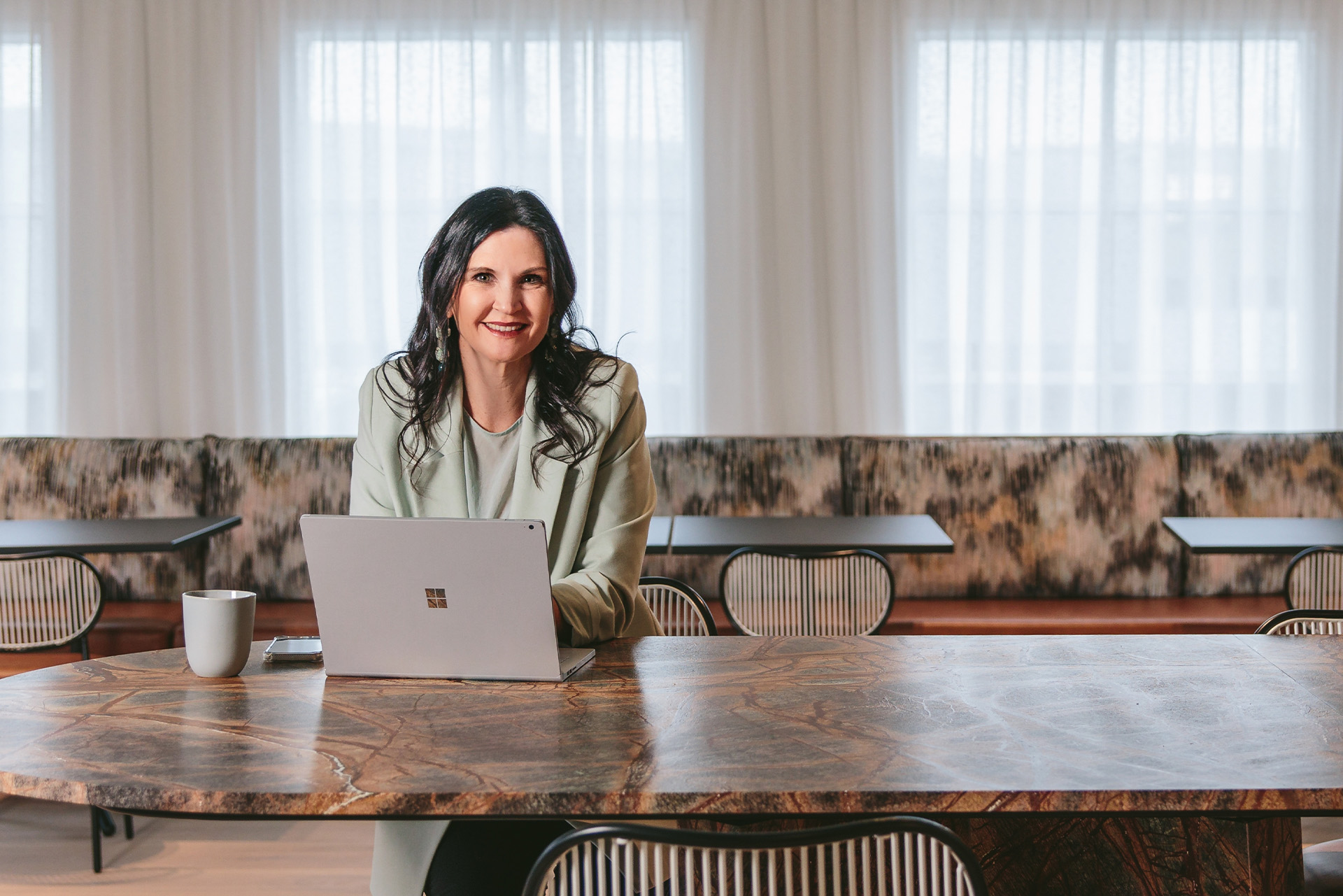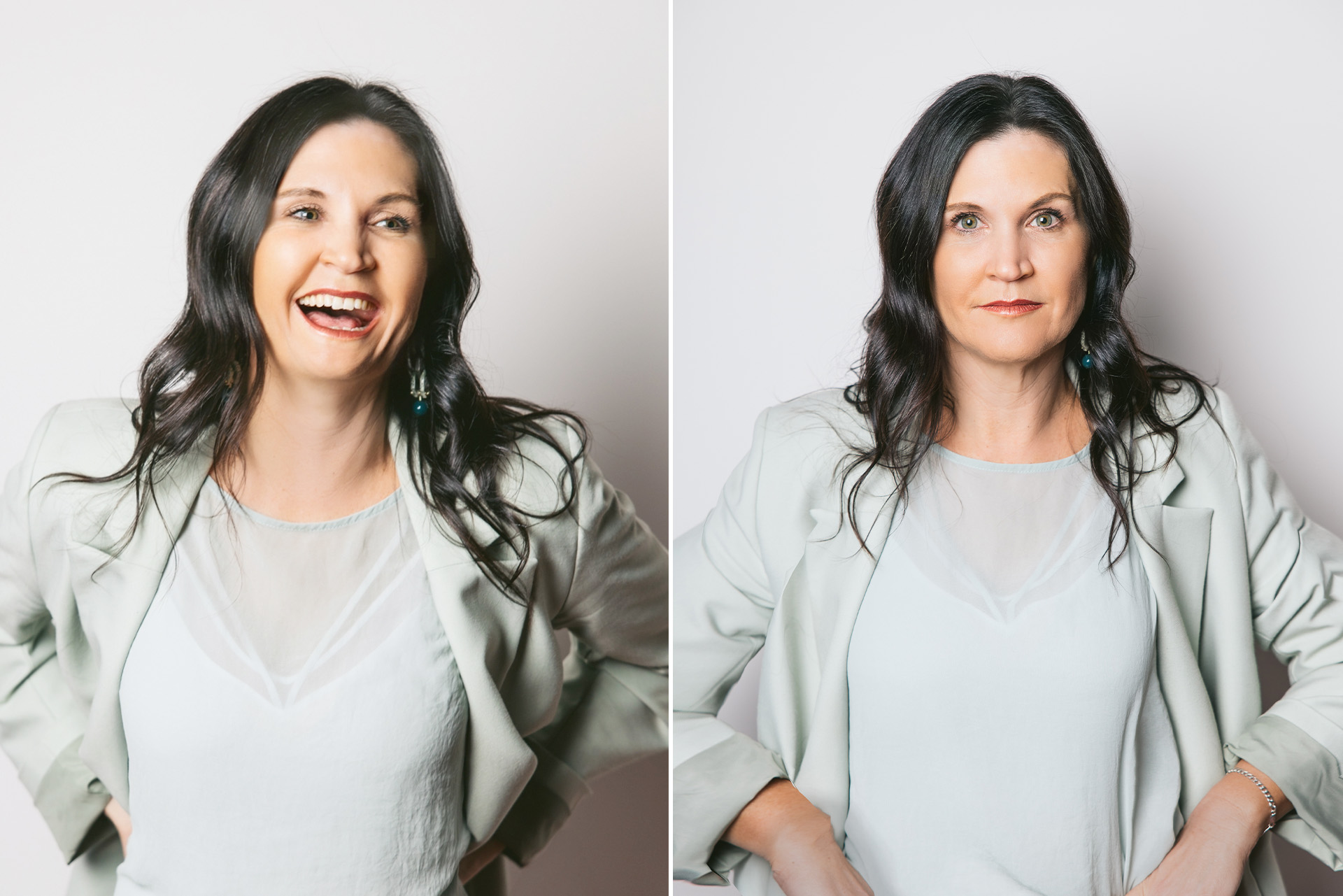All In With Nicola Taylor Of Tax Traders
When Nicola Taylor left the corporate world to start her family, she couldn’t have imagined that within five years she would be leading a successful tax-technology company, disrupting traditional approaches to paying tax through pioneering technology. In the years since Tax Traders was dreamed up over the kitchen table with her husband Josh, their company has been one of New Zealand’s fastest growing companies and now serves thousands of corporate clients and SMEs who want a better way to pay their tax.
Like all pioneering business ideas though, it wasn’t a straight line to success. In the early days of the business, with three young children, no revenue coming in and their savings dwindling fast, Nicola never lost faith that they were on the right track. Here, she shares with us what it was like to put everything on the line for something you believe in.
How would you describe yourself as a leader?
When I left a governance role a couple of years ago, I was given a whakataukī, “Mā te ngākau aroha koe e ārahi” which can be translated to, ‘let your decisions be guided by love’. That’s how I try to be as a leader. I try to let love guide my decisions, which might be an unusual thing to say as a leader, but I don’t think you can go wrong there.
That’s not a soft thing, love can be pretty unrelenting. It can be prepared to stand up and say, ‘You know what? I think you can do better. Let’s talk about that mistake. I want to be upfront with you about that’. You don’t need to have a fight or flight response when you make a mistake. Love perseveres and just wants the world to be better. Love doesn’t settle.
I think people would describe me as warm, as hardworking. I’m really committed to our people and really passionate about our purpose, which is unlocking benefits from New Zealand’s tax system for all Kiwi businesses. I’m passionate about the big corporates, but I’m passionate about the little guys, the SMEs that we serve as well.
Can we go back to the genesis of that purpose as well? What was the opportunity that you saw?
I think any startup needs to be pretty clear about ‘What is the problem we’re solving here, and does that need solving?’ and really validate that. For us, we wanted to unlock the significant business benefits that were hidden deep within New Zealand’s tax system and make those available to all New Zealand businesses, not just the big corporates. That has really remained our driving purpose.
In terms of the moment, it was a combination of things. I was always driven by social change. I had an entrepreneurial streak, as did my husband, Josh. I had a background in law. He had great knowledge of the tax system. Happily, he’d just been made redundant, so we had this opportunity to do something new.
We both had a notion that business could be different. Those forces all came together when we looked at the tax system and we thought, maybe we can do something here to help New Zealand businesses.
Was it still a little bit like a leap of faith moment for you though?
It was actually crazy. When we tell people about it, they can’t believe it because we had two little babies and I was pregnant with our third. We sold our home and we put all of that, and our life savings, into the business.
We were 18 months without income, just living off our savings which were getting smaller and smaller. We were living at a friend’s house and actually didn’t have any real backup. At that moment in time, we didn’t have parents that could bail us out. We’d already sold our home. We started selling Josh’s motorbikes and things like that, it was really dicey.
We got down to the last $3,000 in our account with, by that stage, three little babies. And then at that moment, we brought our first companies on board, and that provided some income. I tell you what, you never forget those people. It was companies like Fisher and Paykel Healthcare and SkyCity that backed us in the early days. These amazing New Zealand companies believed in what we were doing and were willing to give the new kids on the block a go.
It was pretty intense for a while. It was just Josh and me working from the kitchen table, but I believed in what we’re doing. I had such a burning desire in me to do this. I knew that it was going to work.
So even when you’re down to the last $3,000 and there was no other backup, you still knew?
It’s a good question. There may have been a slight wavering in that moment. I remember thinking, ‘Hmm, what would we do if a couple of weeks went on and we did actually have to find a backup place to live?’ But you know, my sense was that this was the door that had opened.
I really believed that it was what we were meant to be doing. I think that sense of belief can carry you a long way. I was pretty sure that this was what we were supposed to be doing and that this was going to work.

I imagine there’s a whole lot of complexity in terms of not only the software, but also the tax legislation and this moving world.
Absolutely. We’ve got a fairly complex tax system. It’s a great tax system, but it’s really complex legislation and sitting in that is a number of benefits.
Because of the complexity involved there, typically some of those benefits are really only available if you are paying a lot of tax or if you have a really clever accountant who can help you access them. What we did is we took that legislation and we codified it in software. We automated that and we turned it into tools so that accountants could access it very, very quickly and simply without taking up a lot of time and therefore could offer it to many more of their clients.
We track that usage to make sure that more clients throughout New Zealand are benefitting from this, but more importantly, that smaller clients are being able to access it. And we are nowhere near satisfied yet; we have new tools under development to ensure we are reaching even more taxpayers.
Our particular piece of the tax puzzle relates to a system that the IRD put in place in 2003, called tax pooling. What we focus on is helping companies pay their provisional tax in a way that suits them. Paying it when they want, and how they want.
Business owners know their company best, they know what their cashflow demands are. They need maximum flexibility and control over that. That’s what we provide for companies using our tools. More and more this happens through technology, through automation and through integration with our software and accounting firms.
Can you talk about what difference it has made to particular clients?
Absolutely. COVID-19 is a really great example of this. One of the features of using our tools is that if you have made a big provisional tax payment and then you need that working capital back in your business, you can access that back.
Now, this happened under COVID-19 with quite a big exporter, that had just made a big provisional tax payment. Lockdown struck, ports were closed. They couldn’t get any of their product out of the country to sell, and they were in a really tight spot.
The bank said no to any more extensions. They couldn’t access any funding, so they talked to us. We could secure their funding against the provisional tax that they had already paid, through our tools, and they were able to keep trading.
They said to us that was basically the reason that they made it through that lockdown period. If you can do that for any New Zealand company, it’s a good day.
How many companies do you think even know that that’s a possibility?
That’s what’s next for us. This whole notion of your provisional tax, which can effectively be used as a really inexpensive working capital facility, is one of the things that I think is still locked up behind the tax legislation. Our roadmap is really about bringing that out in the open. Unlocking that again for more New Zealand businesses and accessing that in a more direct way.
It’s interesting what you’re saying about getting into smaller and smaller businesses, after starting with bigger ones. Is that being part of your growth and scale?
It’s not that we started with the big businesses, but when we launched, only the big businesses were using what was then known as tax pooling. Only they could afford it; it was only accessible to them because of the way the system was set up.
We had to start with the existing users, but our driving purpose has always been to make these benefits available to all New Zealand businesses. We do track so you can look at various accounting firms and when they switch over to using our tools, you can see the difference it makes and the profiles of their clients who are benefiting from using our smart tax tools. The businesses are smaller, you can see the tax amounts that are being paid are smaller, and that’s super encouraging for us.
We’ve been talking about the journey up until this point, but have you got an idea of where you think you’ll be in another nine years?
I’m pretty excited about what we’ve got in our product roadmap for the next three years, which is going to set us up really well for looking further afield. Australia is definitely on our horizons. We also have an exciting product which is much simpler and more focused on end users, providing them with flexibility over when and how they pay their tax and will also be looking at solving other tax pain points for businesses out there.
Again, any good business is looking at what the pain points are for their clients and how they can solve them. We’ve got a long list of those that we are constantly working our way through. When I think about success, I think about, first of all, all New Zealand businesses being able to engage with our tools so that they’re more efficient and more productive, so that they can move much faster to be the business they want to be.
Success is obviously going to lead to being more profitable, but profit for us, for any company really, it’s like oxygen for a person. If you don’t have enough of it sure you are out of the game. But if you think your life is about breathing, you’re really missing something. That’s from Peter Drucker. Yes, we want to be profitable but that’s so we can be an active participat in solving some of the very real problems that are all around us.
I think about the flow on to our charitable partners; I think about the girls in Northern Syria and Afghanistan who will be getting hygiene kits and the opportunity to go to school and learn. I think about the families in South Auckland who will be engaging in really cool parenting programs with their parents. Because if we’re more profitable, those charities are going to be better off and better equipped to solve very real and complex problems
I think about other businesses engaging with us and hopefully thinking, ‘Huh, they’re doing really well and they’re doing things a bit differently. They share their profits, they go above and beyond for their team, they are really great to deal with, maybe we could too’ and I think about more and more businesses stepping up and playing a much more active role in solving society’s challenges. And hopefully more people coming to work with us and experiencing what it is to be really seen in a place of work, to be really valued in a place of work, perhaps to even experience healing and love in a place of work.
That’s how I think about success. And whilst our product roadmap is definitely the way we get there, that’s built on this really firm foundation for us of our purpose and our DNA. Success is this multifaceted thing. That’s what I can see in the future.

Can you talk a little bit more about those facets? The charitable partnerships and what ecosystem have you got there?
When we want to partner with a charity, it’s really important to me that we’re not just giving them money but that we really get involved, put ourselves on the line, be vulnerable, and look at the work that they’re doing and try and see if we can be part of that. We want to partner with them and be part of their ecosystem.
And we are also changing the way we think about this. Typically, we’ve considered that good businesses have made a profit and then given a portion of that profit away. And look we do this for sure. Then business realised that the way in which it made that profit matters, it wasn’t OK to give away money but ruin the environment or treat your people terribly, so again we are very mindful about the way in which we go about making our profits. But it goes even further now. I think there is a real opportunity for business today to directly address social problems, like pollution, the housing crisis, unemployment, inequity in the workplace and much more and this opportunity and this kind of thinking is much more where we are focused now. Because the magic of business is that it can create resources itself, it’s not dependent on a political cycle or donations and this means that it can scale and actually make a difference in a significant and sustainable way.
In terms of further potential global expansion, I imagine that it would be a similar process in terms of codifying some of the benefits within the tax system. Is that part of a future plan as well to go into places like Canada?
Absolutely. So again, trying to stick with countries that have a more or less similar tax system than New Zealand does. So that’s your Commonwealth countries, your Westminster countries. That is definitely on the plan.
There are different ways to think about that. You can either start by trying to see legislation passed considering existing legislation and what pain points there are, or you can just look at various tools that aren’t dependent on legislation at all, various tools that assist companies in paying their tax better. It depends on the context, but certainly, that’s part of the nine-year plan.
Can you give any advice and whether it’s an individual or a couple who are looking at making that leap of faith? What advice would you have to prepare them for that?
I think it’s really important to know why you are doing this and I think that making money is never going to be enough. You need to know that there is a purpose that you are going for and that you are going to make a difference. I think that I had a vision for it. I think in my mind, I could imagine the future state that I was leaning towards. I knew what it would be like to have this business, to have people working for us, to be contributing to New Zealand businesses the way we are. I think if you can have that imagination and come back to that, that’s really helpful.
Having a great co-founder is hugely helpful, startup literature is very big on this. You will know that some of the incubators won’t take you unless you have a co-founder and there are reasons for that. Starting a business is hard and it’s lonely and sometimes you can get stuck in your own head and start spiraling out of control. You need someone alongside you to be able to speak to, to encourage you, to pick you up, give you a kick in the backside if you need it.
Having a couple of cheerleaders around you, if you can, helps too. In the early days, you don’t really share a lot with people around you because you do want to protect your mindset. Not too many people understand why you would sell your home with three little kids, so you don’t tell heaps of people about your wild, crazy dreams. But one or two cheerleaders I think can be really helpful and Mums tend to be pretty great at that!
And then just working really hard and not giving up and understanding that things will always take longer than you think they’re going to. They will always work out slightly differently. That’s okay. Understanding that fear and uncertainty are normal feelings to feel, and that doesn’t mean you’re going down the wrong track. It means that you’re probably going down the right track. So you just need to hang in there, have courage and be prepared to go the other way, turn away from the safe, popular and known and work towards your ultimate purpose, that future state that you can see.

